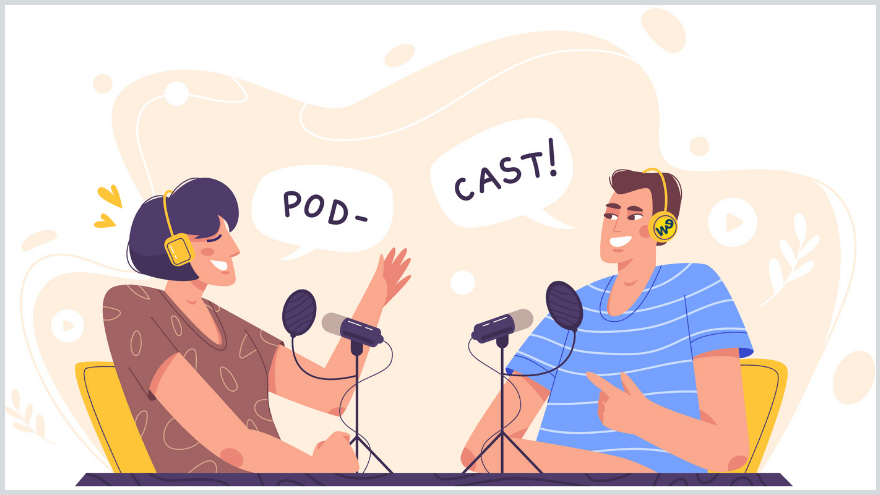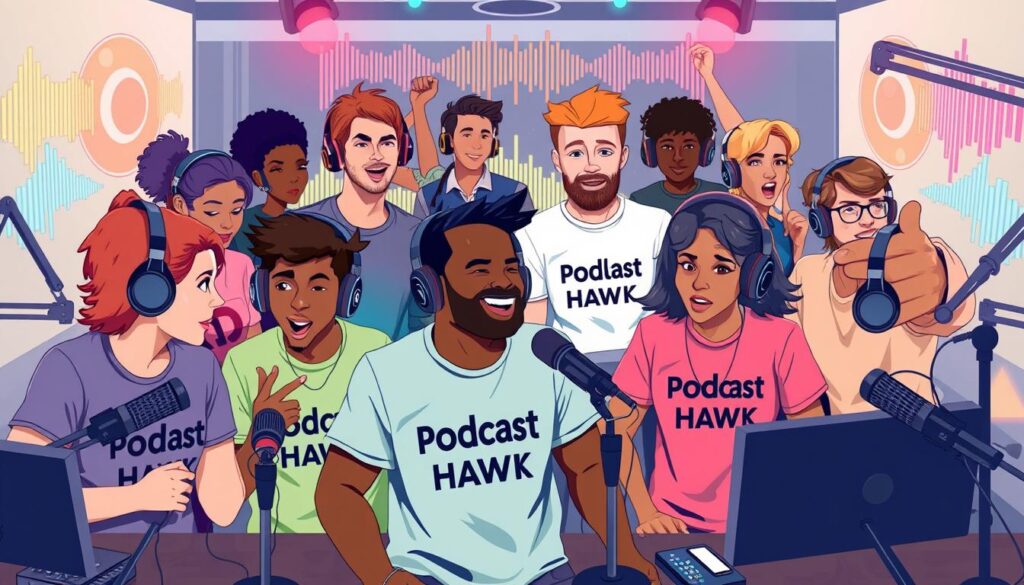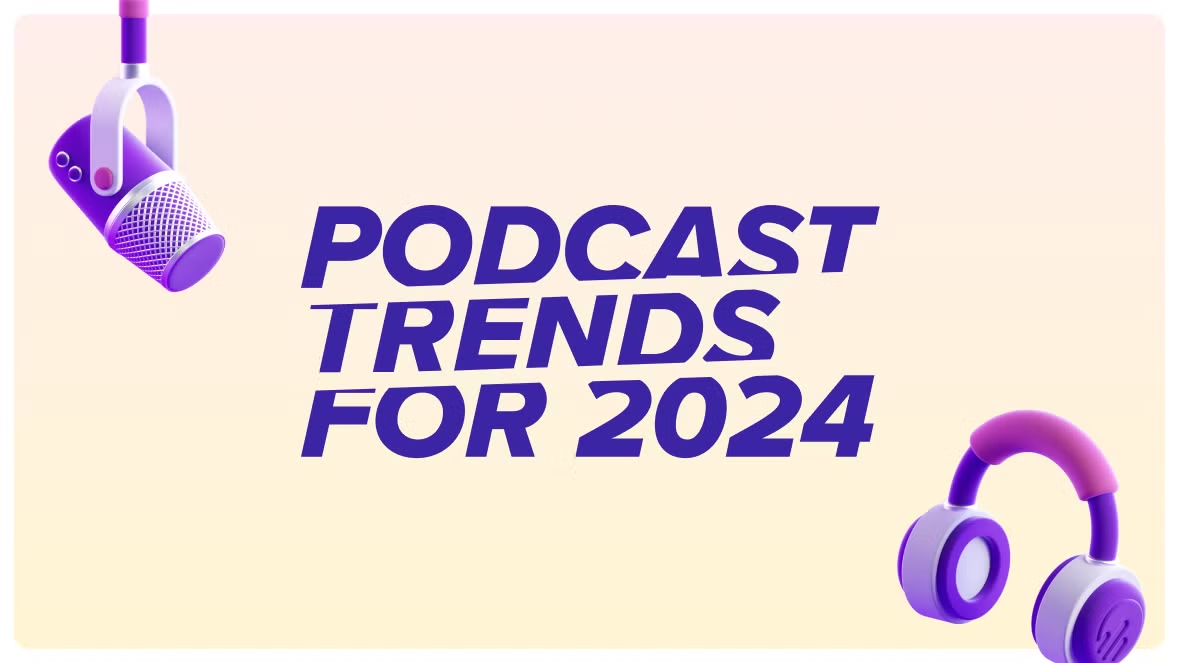
Podcasts have changed how viewers interact with Modern media in the last few years, evolving from a specialized sector to a popular channel for content consumption. Podcasts provide a huge range in style and topic matter, ranging from daily news briefs that last 15 minutes to in-depth interviews that take hours. The ease of access to podcasts has made them essential media for millions of people worldwide, especially since smartphones and internet connections have become almost universal.
The role of podcasts in contemporary modern media consumption, the factors driving their rapid expansion, and their effects on traditional media channels are all explored in this article. We’ll take a look at the most recent change influencing the podcasting industry and its prospects in a world that is becoming more and more digital.
The Rise of Podcasts: A Modern Media
When the concept of “podcast” was created in the early 2000s, it was a combination of the words “iPod” and “broadcast.” Originally produced and distributed by enthusiasts on websites such as iTunes, podcasts were basically downloaded audio files. By 2024, the podcasting ecosystem has grown to be a multibillion dollar industry with over 4 million podcasts offered globally on a platform which includes Spotify, Apple Podcasts, Google Podcasts, and others.
The rise in popularity of podcasts has been influenced by a variety of factors:
- Smartphone Adoption: Podcasts are now quite easy to access because almost everyone has a smartphones in their pocket. From a workout to a commute, customers may listen to an episode at any time and from any location with just a few touches.
- Streaming and Internet Access: The demand for massive downloads has decreased due to faster internet speeds and the growth of streaming services. The ability to broadcast podcasts in real time has improved the smoothness of the listening experience.
- Multitasking: Podcasts allow listeners to engage in information while driving, working out, or cooking, among other activities. Because of this, they have become a popular medium for those who are too busy to watch TV or read a book.
Why Podcasts Are Popular: The Unique Appeal in Modern Media

There are several reasons why podcasts have stood out in the overcrowded digital space:
1. Accessibility and Convenience
A hands-free way for using modern media, podcasts may be listened to whenever it’s convenient for the listener. Podcasts are perfect for multitasking since they don’t demand your whole attention as textual or visual content does. Widespread adoption is the outcome from this ease, particularly among parents, students, and working professionals.
2. Niche Content for Specific Audiences
Podcasts are not limited by editorial guidelines or time slots like traditional media. In order to serve specific audiences, creators might go into extremely specialized subjects. There is a podcast that caters to your hobbies, whether they be astronomy, horror, bitcoin, or real crime. One of the main factors driving the expansion of modern media of podcasting has been its capacity to engage with extremely specialized groups.
3. Personal Connection and Engagement
Podcasts allows the broadcaster and listener to develop an unique, close relationship. A personal connection that is difficult to duplicate through other media is created by the conversational approach of many podcasts. A popular comedian, journalist, or expert is only one example of how listeners often feel as though they “know” the presenter, which boosts engagement and loyalty.
4. Length Flexibility
Podcasts might differ in duration based on the topic, but regular TV programs and radio broadcasts are restricted to specific time windows. With this freedom, creators may provide information that is tailored to the listener’s requirements, be it a lengthy two-hour interview or a fast 10-minute briefing.
Podcasting’s Impact on Traditional Media

Without a question, the rise of podcasting has affected traditional media platforms like print, television, and radio.
1. The Decline of Radio
Podcasts are often thought of as a modern media alternative to radio. Since podcasts are on-demand, there is far more control over the material than with regular radio, where listeners are subject to the programming schedule. Many radio hosts have also made the switch to podcasting after realizing that more and more of their listeners are going online.
2. TV and Video Streaming
Podcasts serve a particular market even though video continues to be among the preferred methods to consume media, particularly with the growth of streaming giants like Netflix and YouTube. When they can’t see something visually, such while working out or commuting, a lot of people turn to podcasts. The podcast’s status as a supplementary media format has been further validated by the introduction of podcast versions of TV series by TV networks and even streaming platforms.
3. Newspapers and Digital Journalism
In the world of digital media, podcasts have grown into an effective tool for in-depth reporting. The New York Times, The Guardian, and other traditional media sources have made significant investments in podcast programs that cover a wide range of topics, including politics, culture, and current events. These podcasts provide a narrative-driven, extended storytelling format that is challenging to get in a regular news article.
Monetization and Advertising: The Podcast Economy

It appeared inevitable that advertisers would take notice of podcasts as their popularity grew. By 2025, it is anticipated that the podcast business will have made over $2 billion in advertising income, a significant rise from $479 million in 2018. The following essential factors play a part in podcast monetization:
1. Targeted Advertising
The highly targeted approach to podcast advertising typically makes it more successful than traditional media. Podcasts allow advertisers to target a certain demographic with their goods and services since they attract in specific audiences. In addition to personalizing the content, the host-read commercial adds a feeling of authenticity by having the podcast host read it in their own voice.
2. Subscription and Crowdfunding Models
A growing number of podcasts are using subscription models, although many still rely on ad revenue. While podcasting applications like Apple Podcasts now provide subscription options, listeners may use platforms like Patreon to directly support their favorite producers. This gives authors a more steady source of income and frees them from the limitations of advertising to make content.
3. Branded Podcasts
A further emerging trend is branded podcasts, in which businesses produce their own programs to interact with their listeners. The corporation uses these podcasts as a marketing tool to advertise its goods and services rather than depending on external sponsors. Financial companies may start a podcast about personal finance, for instance, and professionally include their own services in the content of the podcast.
The Latest Trends in Podcasting for Modern Media

The most recent advances in technology, shifting consumer tastes, and innovative business strategies have all influenced the podcasting industry’s ongoing evolution. Among the most recent advances are:
1. Video Podcasts
These days, a lot of podcasters are including visuals into their broadcasts by filming versions and posting them to websites like YouTube. Producers can reach a wider audience and provide an even deeper listening experience with video podcasts.
2. AI and Personalized Content
The field of podcasting is beginning to use artificial intelligence. Personalized podcast episodes may now be suggested by AI-powered systems that look into listener preferences. AI is also being used to create content, such as by creating show notes and automating transcription.
3. Global Expansion
The usage of podcasting is no longer primarily seen in Western countries. The total number of podcast listeners is rapidly increasing in Latin American, Asian, and African nations. For instance, local-language podcasts are becoming more popular in India, creating new markets for both advertising and content producers.
The Future of Podcasts in Modern Media Consumption

Podcasts appear to have a bright future as long as technical advancements continue to influence the medium. Podcasts and smart devices, such as voice assistants like Alexa and Google Home, should continue to integrate more smoothly in the years to come. Furthermore, more immersive and engaging podcast experiences may result from advancements in virtual reality and augmented reality.
With its unique combination of accessibility, interaction, and diversity, podcasting is expected to continue to play a significant role in contemporary media consumption as it develops. Podcasts have established a sizable niche for themselves in the media landscape, whether for the sake of education, entertainment, or personal development, and they don’t appear to be going anywhere.
Conclusion
In the present day media environment, podcasts have become an influential tool that is revolutionizing the way that consumers consume material. Millions of people turn to them as their primary source of entertainment and information because of their adaptability, accessibility, and capacity to serve specialized audiences. Podcasts have the potential to become even more significant in the future of media consumption as the medium develops further, changing how we interact with news, stories, and concepts.
Read Also – From the Courtroom to Social Media: How Lawyers are Taking Over Social Media
Unlocking the Job Opportunities After BA Graduation 2024

